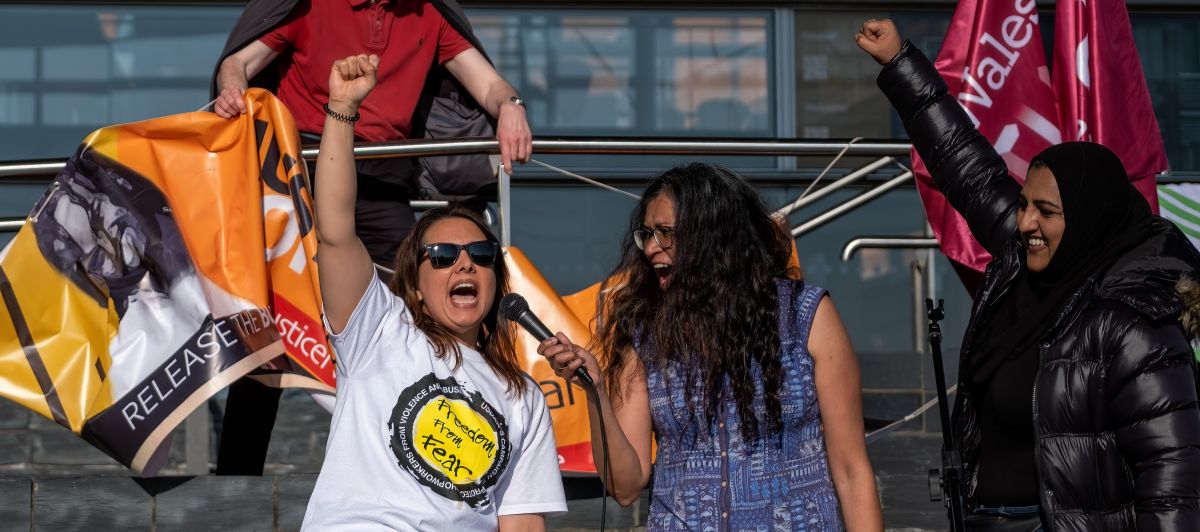
How can the trade union movement raise our voices for action against racial discrimination?
The theme of this year’s UN International Day for the Elimination of Racial Discrimination was ‘voices for action against racism’. Now that we have raised our voices, what actions can the trade union movement do to make sure that we raise our voices against racism, and that our actions are not performative empty gestures?
The first thing I should do is say that, as a white woman, I haven’t experienced racism and I never will. So, in this movement, my role is to take the actions that Black, Asian and Minority Ethnic workers tell me is needed. Those that suffer the pandemic of racism should not be primarily tasked with undoing this work. The exhaustion of experiencing racism, and then working to undo it, is a heavy burden and one which should be shared.
Workplaces must have policies and procedures in place to deal with racism, of course. And there are quick wins that workplaces can take like removing hair policies which disproportionally affect Black Women. But, the end to racism doesn’t lie in paperwork – our movement needs actions. Our trade union lessons must take action to decolonise the learning. Our support for Black, Asian and Ethnic minority workers needs to increase. Our methods of communication need to be clearer and our message to employers needs to be stronger. We won’t tolerate racism and our movement, the largest non-governmental membership organisation in the UK, is behind us.
Making the workplace accessible, safe and welcoming for Black workers
Just as we would expect reasonable adjustments in the workplace for Disabled workers, parents or people with caring responsibilities, work can easily be adjusted to make sure it’s more accessible, safe and welcoming for Black workers. This means providing safe spaces for Black workers so that union reps can build necessary changes into collective bargaining agreements. It means reaching out and finding Black talent and engaging with them – technology has never made this easier.
It means ensuring that pay and progression is always on the agenda. And it means that reps always know where Black workers are within the organisational structures. We don’t just want pay parity in terms of hourly wages but contract types so that zero hours contracts don’t disproportionally affect Black workers as they have done up to now. And it also means ensuring that panels of workplace experts are never made up of just white people.
Decolonising the workplace will be different in every workplace, and the few examples are the very start of that work. It takes proper and safe engagement with Black workers and all our collective efforts to achieve.
So, in the year between now and the next UN International Day for the Elimination of Racial Discrimination, let’s raise our voices against racism. And let’s use our voices wisely. What can you do today to communicate with your team and start working towards an anti-racist Wales?
